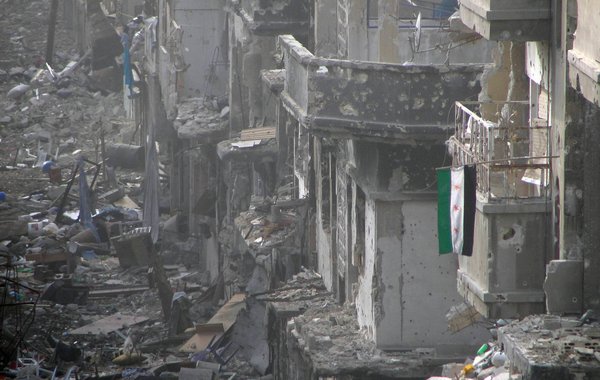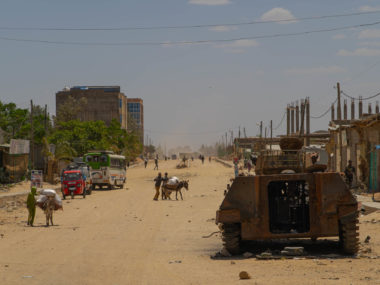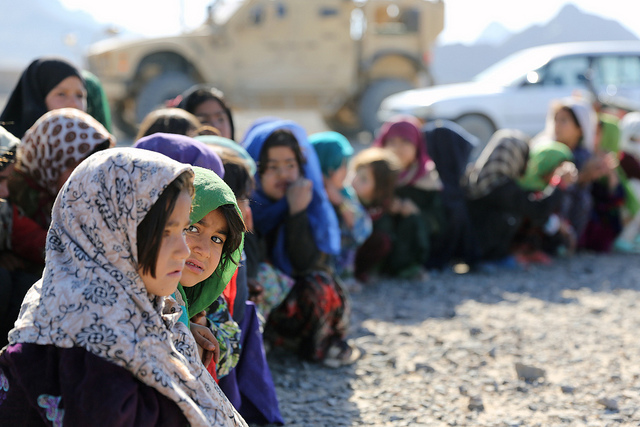Guest Post by Pauline Moore for Denver Dialogues
What role can ex-combatants play in leading reconciliation processes in the wake of violent conflict? Despite the centrality of former fighters in disarmament, demobilization, and reintegration (DDR) programs, few programs explicitly harness the experiences of former combatants to advance reconciliation. And while many initiatives strive to reintegrate former members of armed groups into society, i.e. among communities of civilians, they pay little attention to fostering ties among individuals who were at one time on opposite sides of the front line. Yet in many post-civil war contexts, it is highly likely that combatants from opposing sides will find themselves reunited in their hometowns or villages. This may be particularly true in wars that demand the participation of significant segments of a population, and that pit neighbor against neighbor.
I was struck by this question during recent field research in Bosnia-Herzegovina, where I interviewed ex-combatants from the Army of Bosnia-Herzegovina (ABiH) for an ongoing research project. The proximity of combat during the Bosnian war –in the geographical as well as social sense – imposed significant moral pressures on combatants. For the most part, individuals who fought in the war took up arms in the places that they had lived and worked for years, largely in defense of their homes and families. That means that Bosnian Serbs, Croats, and Muslims who had coexisted as schoolmates, close friends, and neighbors joined the ranks of opposing, often hastily-formed armed groups. I asked ABiH war veterans how pre-war social connections to Bosnian Serbs and Croats affected dynamics during the war and got interesting answers.
Specifically, pre-war ties had the effect of increasing the extent to which fighters from one side sought out friendly contact with fighters from other sides. For example, one ABiH soldier who operated radios communicated with a friend who had joined the Bosnian Serb Army, and was able to check up on his well-being. Others who were close to the front lines would socialize, listen to music, or trade cigarettes and food with combatants from opposing forces. These instances of friendly banter organized on the basis of pre-war social ties had an effect – however small – of dampening the intensity of violence at micro levels, highlighting the positive influence of social ties during war.
This is not to say that personal connections changed the course of the war in any macro-sense, especially as wartime commanders anticipated the potentially adverse implications of strong pre-war, ethnically cross-cutting social ties. In fact, military units included morale officers responsible for reformulating the wartime discourse around the existence of an “internal enemy” to overcome locally grounded attachments to pre-war social relationships.
Given the polarizing contemporary context surrounding the Bosnian war, I was surprised by the extent to which interviewees focused on the importance of pre-war social ties with fighters from opposing sides. Today, politicians in Bosnia are quick to use victim commemoration ceremonies opportunistically to revive nationalist fervors, so much so that war memorials often become barriers to repairing and restoring pre-war relationships. Yet the divisive narratives of political leaders did not seem to resonate with what I was hearing from many of the veterans that I spoke to. I found some confirmation of my initial impressions in the work of one organization in particular, and sat down with two of its members.
The Center for Nonviolent Action (CNA) in Sarajevo and Belgrade works to foster peace and reconciliation in the Balkans by promoting nonviolence and dialogue among war veterans. Activist Adnan Hasanbegović says that ex-combatants who fought in the Bosnian war are today often perceived as heroes, which grants them a certain level of credibility among the broader population and highlights their potential as leaders in post-conflict reconciliation efforts. It also makes their anti-war message immune to attacks from nationalists who seek to glorify a violent past.
To fulfill its mission, CNA organizes nonviolent conflict transformation trainings that bring together war veterans from former Yugoslavian states. They work collectively on dealing with the past to “promote the image of former fighters as peace builders.” An important component of this mission includes visits to war memorials by mixed groups of veterans, where they can participate directly in reconciliation. The decision to participate is not an easy one to make, but by agreeing to do so war veterans take the first step towards helping to fulfill a promise of peace in their country to benefit future generations.
CNA is forging important inroads into challenging divisive war narratives by encouraging veterans to spread an anti-war message that honors all those who were killed in Bosnia’s armed conflict. The conversations that I had with veterans about their own experiences suggest that the model of fostering ties among this particular social group may prove especially promising. Many veterans are likely ready for open dialogue focused on forming collective memories of the war. Indeed, Hasanbegović is optimistic about Bosnia’s future, and hopeful that people will increasingly turn to addressing their past from a common perspective. Working with former combatants to spread a balanced and inclusive memory of the war will likely be critical to the process. And it is likely that the promise of CNA’s model extends well beyond Bosnia, to post-conflict societies around the globe that make room for war veterans in their reconciliation efforts.
Pauline Moore is a PhD candidate at the Josef Korbel School of International Studies, and a Research Fellow at the Sié-Chéou Kang Center for International Security and Diplomacy.






